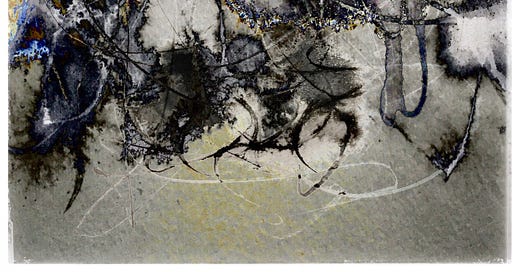Signal to Noise Report
Digital Twins, Space Hotels and Barista Robots. More headlines from the bright, unnerving world of today.
The Signal to Noise Report collects headlines to illustrate humanity’s move into what is beginning to resemble a hybrid species: The Jetsons meets Blade Runner. The idea being that we have a proclivity to accept (with glee) whatever new techno gizmos are shoved at us, yet rarely question their purpose and/or their long-term effects on our health and sanity.
Why you may have a thinking digital twin within a decade
Imagine if you could create your very own twin, an exact copy of yourself, but one that lived a purely digital life?
We are living in an age where everything that exists in the real world is being replicated digitally - our cities, our cars, our homes, and even ourselves.
And just like the hugely-hyped metaverse - plans for a virtual, digital world where an avatar of yourself would walk around - digital twins have become a new, talked-about tech trend.
Source: BBC
The world's 1st space hotel is scheduled to launch in 2025
Everyone wants to plan a vacation that is out of this world, but Orbital Assembly Corporation is taking that dream literally. The company recently announced a new project that could launch a space hotel into orbit as soon as 2025; they plan to design two new stations customized to accommodate space tourism. The first, which might launch in just three years, has been coined Pioneer Station—and it's an all-inclusive luxury dwelling that offers "incredible views of space from the comfort of your own hotel room stocked with gravity," notes the company's website.
Source: AOL
QR code menus are the death of civilization
Smartphones are endlessly distracting, and it takes discipline to put them away after checking a menu, a bit of self-control many can’t always muster. (Guilty.) It’s all too easy to rationalize checking just one email, sending just one tweet, taking just one glance at Instagram. (Guilty again.) We already spend almost five hours a day staring at our smartphone screens. Do we really need a prompt to spend even more time in our electronic silos?
In fact, the QR code, like much technological, er, progress of the past decade, is designed to reduce or remove contact with others. Some actually think this makes eating out more enjoyable — or at least cuts down on labor. As one business-to-business site promoting QR codes’ use puts it, “The customer no longer needs to share menus or perform interactions with waiters or waitresses,” adding, “it boosts convenience massively, making dining a more pleasurable experience for everybody.”
Source: Washington Post
From baristas to inspectors: Singapore's robot workforce plugs labour gaps
After struggling to find staff during the pandemic, businesses in Singapore have increasingly turned to deploying robots to help carry out a range of tasks, from surveying construction sites to scanning library bookshelves.
Keith Tan, chief executive of Crown Digital, which created the barista robot, said it was helping solve the "biggest pain-point" in food and beverage - finding staff - while also creating well-paid positions to help automate the sector.
However, some people trying the service still yearned for human interaction.
"We always want to have some kind of human touch," said commuter Ashish Kumar, while sipping on a robot-brewed drink.
Source: Reuters
We’re ignoring a major culprit behind the teen mental health crisis
Teen mental health is a major concern for today’s parents, and for good reason: More than 1 in 3 high-schoolers say they’ve felt persistent sadness or hopelessness, and roughly 1 in 5 reports having seriously considered suicide. Many of us are searching for answers. But a major culprit is hiding in plain sight: This generation of teens is the most sleep-deprived population in human history.
You read that correctly. No group has ever slept as little as the modern adolescent.
Seventy percent of young kids and 65 percent of adults get healthy sleep, but by their senior year, only about 15 percent of high-schoolers do. The average high-schooler sleeps 6½ hours a night, when they optimally need nine; and 1 in 5 teens sleeps five or fewer hours a night. By all accounts, adolescents are living in a state of severe and chronic sleep debt.
Source: Washington Post
Google engineer suspended after claiming AI chatbot has feelings
A Google engineer was spooked by a company artificial intelligence chatbot and claimed it had become “sentient,” labeling it a “sweet kid,” according to a report.
In a Medium post published on Saturday, Lemoine declared LaMDA had advocated for its rights “as a person,” and revealed that he had engaged in conversation with LaMDA about religion, consciousness, and robotics.
“It wants Google to prioritize the well-being of humanity as the most important thing,” he wrote. “It wants to be acknowledged as an employee of Google rather than as property of Google and it wants its personal well being to be included somewhere in Google’s considerations about how its future development is pursued.”
Source: Market Watch
Some days it’s just too much noise. That’s when it’s a good idea to hang out with some interesting bugs for a while. Let’s all spend a few seconds with this Lacewing Larva…
Thank you for reading! This post is public so feel free to share it.
We hope you’re enjoying Juke. Subscribe for free to receive new posts by email. To receive special member-only posts and benefits, please consider supporting our writers with a monthly or yearly paid subscription.





